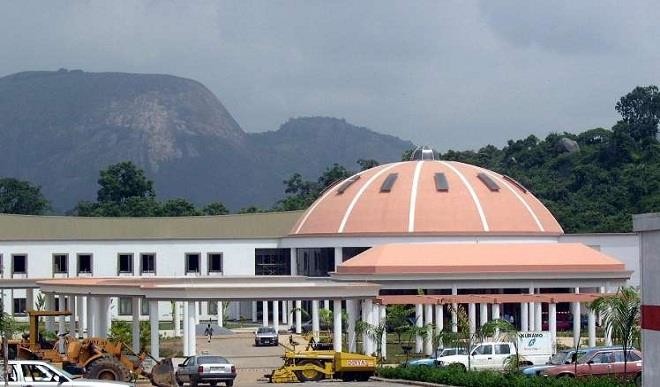COVID-19: Buhari observes Juma’at prayers at Aso Villa mosque
President Muhammadu Buhari today joined other worshipers to observe Juma’at prayers at the Presidential Villa, Abuja. Dignitaries, who attended the Juma’at prayers led by the Chief Imam of Aso Villa Mosque, included the Director General of the National Intelligence Agency, Ahmed Rufai Abubakar; and the Director General of the Department of State Services (DSS), Yusuf […]

President Muhammadu Buhari today joined other worshipers to observe Juma’at prayers at the Presidential Villa, Abuja.
Dignitaries, who attended the Juma’at prayers led by the Chief Imam of Aso Villa Mosque, included the Director General of the National Intelligence Agency, Ahmed Rufai Abubakar; and the Director General of the Department of State Services (DSS), Yusuf Bichi.
Security personnel used digital thermometers to check body temperatures of all worshipers before entering the vicinity of the mosque for prayers. This was not the usual routine.
They also ensured that each worshiper complied with the use of hand sanitiser to disinfect their hands.
The process, which they (Muslim faithful) had gone through at the Main Reception, was repeated because of the COVID-19 pandemic ravaging countries across the world with human casualties.
Normally, the worshipers at the weekly Friday prayers were minimal.
Lagos State Government on Wednesday banned all religious gatherings of over 50 people within the state as part of move to curb the spread of the virus.
The decision was arrived at after a meeting with religious leaders affected, especially Sunday church services and Friday Juma’at prayers.
Friday prayers in some mosques in Lagos and the Federal Capital Territory (FCT), Abuja, were temporarily cancelled as a measure to stop the spread of COVID-19 popularly known as Coronavirus.
SEE ALSO: Kaduna suspends religious, social gatherings
The federal government had already ordered the restrictions of travel from 16 countries, each with more than 1,000 confirmed cases of Covid-19 to prevent the spread of cases imported into Nigeria.
Schools, including primary, secondary, and tertiary institutions of learning, in various parts of the country had also been shut as a preventive action.
